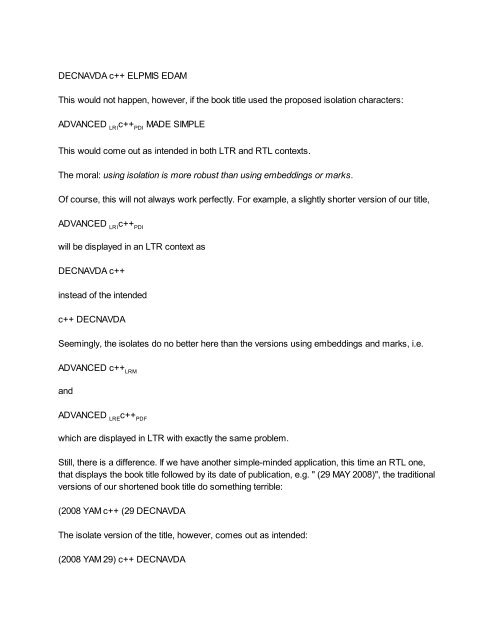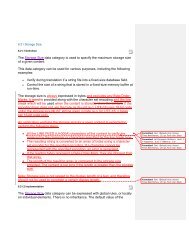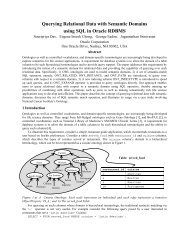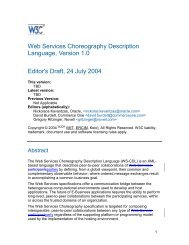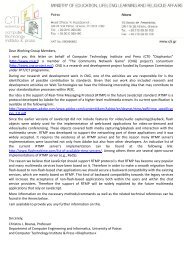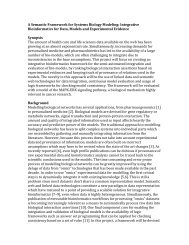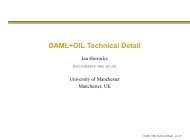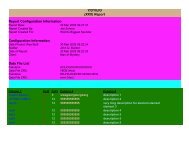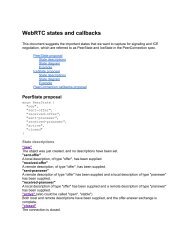A Proposal for Bidi Isolates in Unicode
A Proposal for Bidi Isolates in Unicode
A Proposal for Bidi Isolates in Unicode
You also want an ePaper? Increase the reach of your titles
YUMPU automatically turns print PDFs into web optimized ePapers that Google loves.
DECNAVDA c++ ELPMIS EDAM<br />
This would not happen, however, if the book title used the proposed isolation characters:<br />
ADVANCED LRI<br />
c++ PDI<br />
MADE SIMPLE<br />
This would come out as <strong>in</strong>tended <strong>in</strong> both LTR and RTL contexts.<br />
The moral: us<strong>in</strong>g isolation is more robust than us<strong>in</strong>g embedd<strong>in</strong>gs or marks.<br />
Of course, this will not always work perfectly. For example, a slightly shorter version of our title,<br />
ADVANCED LRI<br />
c++ PDI<br />
will be displayed <strong>in</strong> an LTR context as<br />
DECNAVDA c++<br />
<strong>in</strong>stead of the <strong>in</strong>tended<br />
c++ DECNAVDA<br />
Seem<strong>in</strong>gly, the isolates do no better here than the versions us<strong>in</strong>g embedd<strong>in</strong>gs and marks, i.e.<br />
ADVANCED c++ LRM<br />
and<br />
ADVANCED LRE<br />
c++ PDF<br />
which are displayed <strong>in</strong> LTR with exactly the same problem.<br />
Still, there is a difference. If we have another simple-m<strong>in</strong>ded application, this time an RTL one,<br />
that displays the book title followed by its date of publication, e.g. " (29 MAY 2008)", the traditional<br />
versions of our shortened book title do someth<strong>in</strong>g terrible:<br />
(2008 YAM c++ (29 DECNAVDA<br />
The isolate version of the title, however, comes out as <strong>in</strong>tended:<br />
(2008 YAM 29) c++ DECNAVDA


